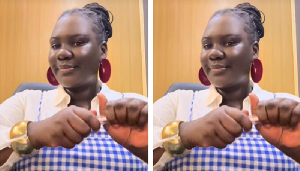Accra, March 14, GNA - Alhaji Mohammad Mumuni, Minister of Foreign Affairs and Regional Integration on Monday said Ghana was still committed to the ideals, core values and fundamental political principles of the Commonwealth.
Alhaji Mumuni who made this known on the floor of Parliament to commemorate this year's commonwealth celebration called on the global community to fight against all forms of discrimination against women. The day, which is marked on every second Monday of March, is on the theme: 93Women as Agents of Change." He said the theme was timely due to its relevance on the national and international agenda. Alhaji Mumuni noted that women and girls made up more than half of the world's population, hence the need for awareness creation on issues concerning them.
He said women's empowerment had become a very important tool for development and crucial for the achievement of the internationally agreed development benchmarks, including the Millennium Development Goals. Alhaji Mumuni said the principle of equality among sexes had been part of the agenda of the Commonwealth since its inception. He said for years the Commonwealth had run programmes aimed at addressing issues relating to women's leadership, entrepreneurship, access to health as well as education. This include the adoption of a commonwealth plan of action for gender equality to reaffirm its commitment to gender equality focusing on; Gender, Democracy, Peace and Conflict, Gender, Human Rights and Law, Gender, Poverty eradication and economic empowerment and HIV and AIDS.
Alhaji Mumuni said government had accepted the objectives of the 2004 Women's Manifesto for Ghana, explaining that the Ministry of Women and Children's Affairs was working with the sponsors of the Manifesto and other stakeholders for the incorporation of the key demands in a revised Affirmative Action for Women, expected to be finalised by the end of the year.
A statement from Queen Elizabeth, Head of the Commonwealth, which was read by the Speaker; Mrs Adeline Bamford Addo, noted that every year 26 million girls are born, which equates to one new baby girl a day. Ms Shirley Ayorkor Botchey, Member of Parliament for Weija said women's representation in Parliament was very low and expressed the need for the trend to change. A Commonwealth youth group comprising students from tertiary institutions such as Accra Polytechnic and University of Ghana were present in the house to commemorate the day. 14 March 11
General News of Monday, 14 March 2011
Source: GNA












